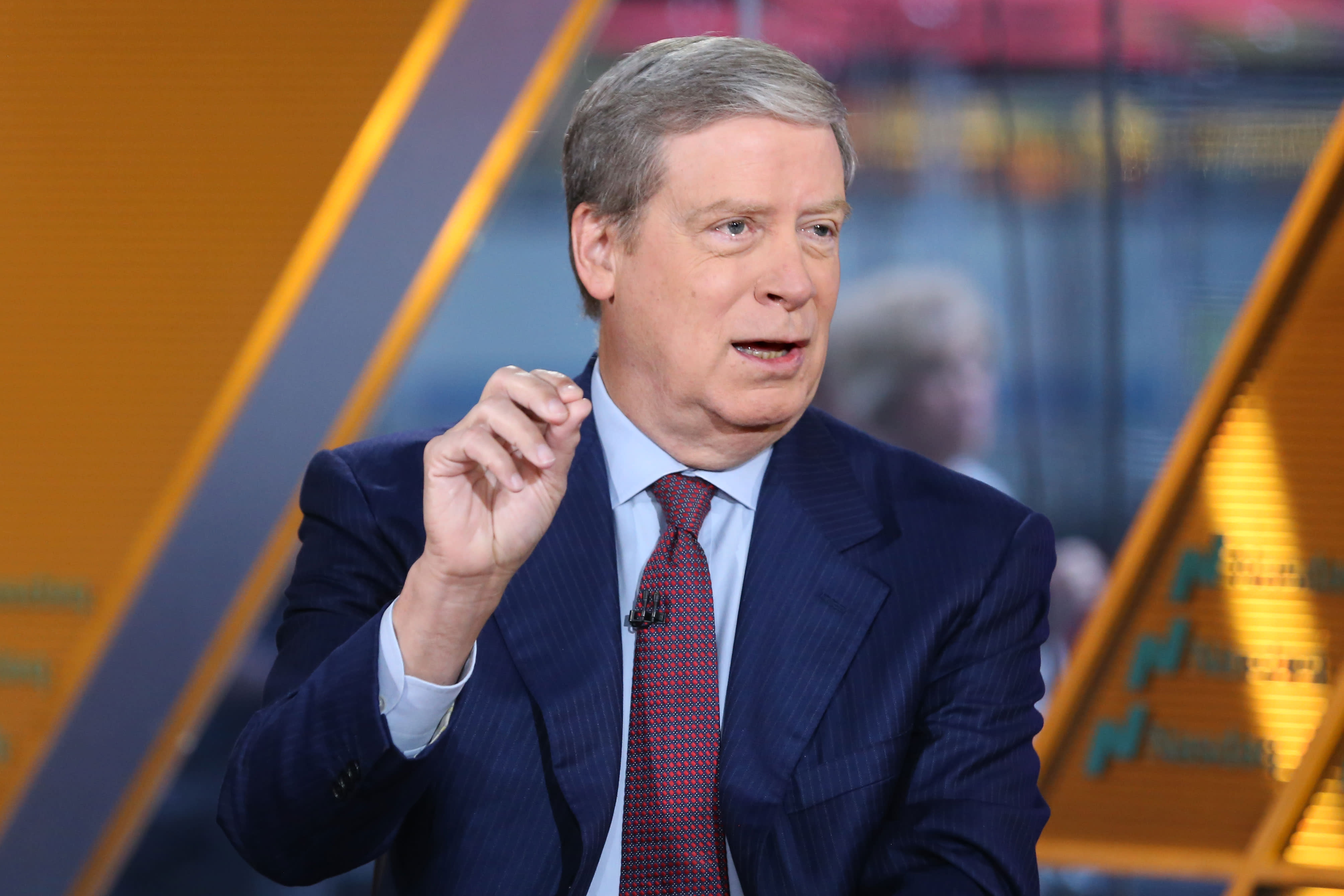Stanley Druckenmiller
Anjali Sundaram
This is a developing story. Check back for updates.
Longtime hedge fund manager Stanley Druckenmiller says stocks would plummet if Senator Bernie Sanders were elected president in the 2020 election.
“If Bernie Sanders became president, I think stock prices should be 30% to 40% lower than they are now,” he said on “Squawk Box” on Friday.
“The good news is we’d all be much more equal because everybody would be poorer but the rich would have lost a lot more wealth than the poor would have,” he joked.
Earlier this week, Druckenmiller said he believed President Donald Trump will lose his re-election bid thanks to discontent in key swing states, saying the Republican president got lucky in 2016 and could lose if Democrats run a more centrist candidate. The problem, he said, would be if a “crazy” Democrat beats him.
“I personally think it’s going to depend on the Democratic candidate, but he drew an inside straight: he won seven out of seven states by less than half a percent,” Druckenmiller said. “If you go county by county in Pennsylvania, Michigan and Wisconsin, he is in deep, deep, deep trouble. And that was with the economy growing at 3%.”
The billionaire investor also said on Friday that the president’s aggressive trade policies could kill “animal spirits” and business confidence and disrupt key supply chains.
Plans by progressive politicians have pitted Wall Street against certain left-wing members of the Democratic Party that hope to triumph over Trump next year. Sen. Bernie Sanders, a self-described democratic socialist, is the No. 2 favorite to win the nomination behind more-centrist Vice President Joe Biden, according to recent polls.
Druckenmiller and other hedge fund managers feel that a far-left candidate and their policies could increase regulation and taxes, deflating stock prices.
The Vermont senator outlined a plan in a New York Times op-ed earlier this year that would prevent companies from repurchasing their stock unless they pay workers at least $15 an hour and other benefits.
